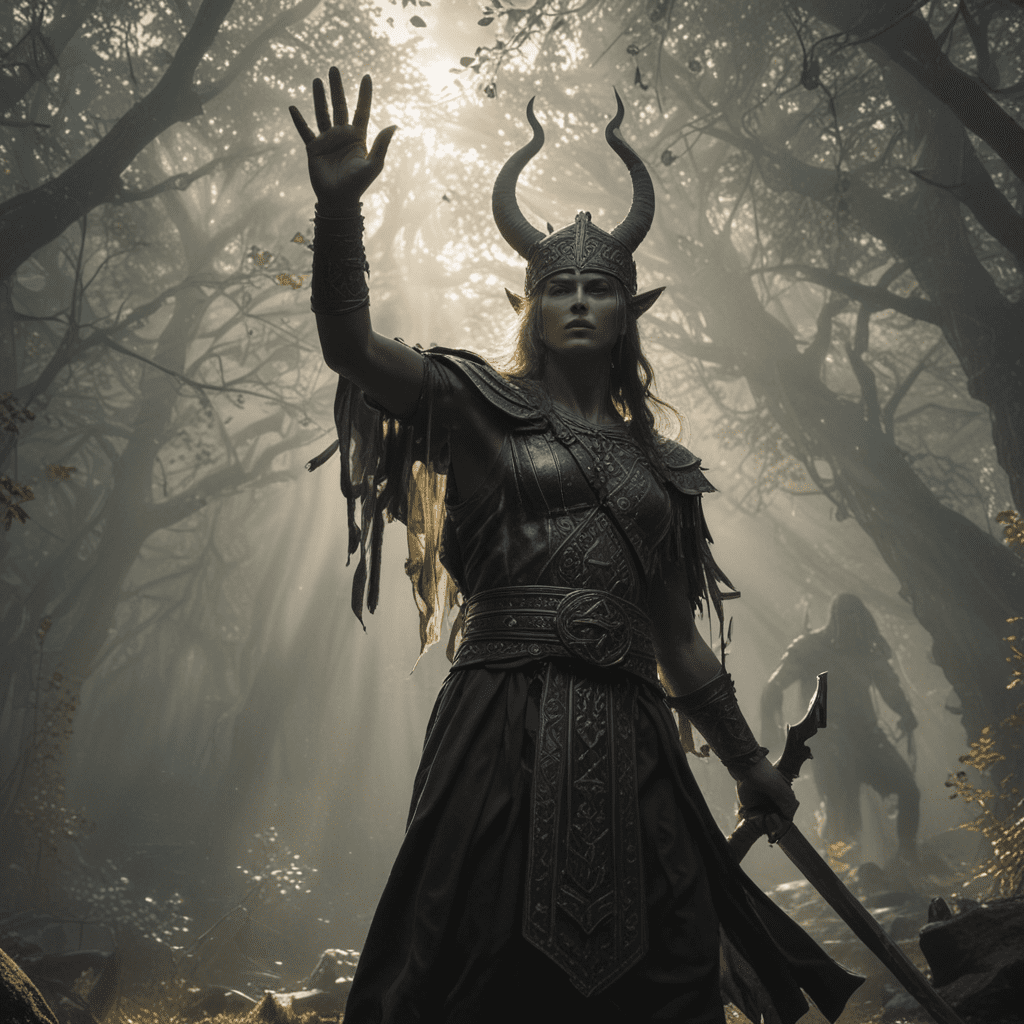1. Introduction
African mythology is a rich and diverse tapestry of beliefs that have been passed down through generations, shaping the cultural heritage of the continent. These myths provide a glimpse into the beliefs and values of ancient African societies, offering insights into their origins, their understanding of the world, and the rituals they practiced. Migration, a constant feature in African history, has played a significant role in shaping these mythological beliefs.
2. Mythological Beliefs in Pre-Migration Africa
Before the advent of large-scale migrations, African mythology was characterized by a shared set of themes and motifs. Common beliefs centered around the creation of the universe, the existence of divine beings, the role of ancestors in the lives of the living, and the significance of the natural world. Deities often embodied the forces of nature, such as the sky god Olorun in the Yoruba mythology of West Africa. Myths often explained the origin of human life, the establishment of social order, and the presence of evil in the world.
3. The Impact of Migration on Mythological Beliefs
Migration, whether voluntary or forced, has had a significant influence on African mythologies. The displacement of people from their ancestral lands often resulted in the mixing and merging of different belief systems. This led to the introduction of new deities, myths, rituals, and practices into existing mythological frameworks, creating a dynamic and ever-evolving landscape of beliefs and practices.
4. Migration as a Symbol in African Mythology
In African mythology, migration is often used as a symbol to represent journeys of self-discovery, growth, and transformation. Narratives of migration are found in myths across the continent, serving as a way to explain the origins of different ethnic groups and their unique cultural practices. These myths frequently depict heroes or legendary figures who undertake perilous journeys across vast landscapes, encountering challenges that test their strength and resilience, ultimately leading to their transformation and the establishment of new societies and traditions.
5. The Role of Migration in Mythological Adaptation
Migration has played a crucial role in the adaptation of African mythological beliefs. As people migrated from one place to another, they carried with them their own cultural practices and belief systems. These beliefs often blended with the mythologies of the new communities they encountered, leading to the emergence of hybrid myths and the incorporation of new elements into existing belief systems, fostering cultural synthesis and the creation of a rich and diverse tapestry of African mythology.
6. Influence of Migration on Mythological Characters
Migration has also influenced the transformation of deities and legendary figures in African mythology. As different cultures interacted, their mythological characters underwent changes to reflect the new environments and beliefs they encountered. Deities might assume different aspects or attributes, and their roles and relationships within the mythological framework might be altered. This process of transformation contributed to the creation of hybrid characters that embodied multiple identities, reflecting the cultural fusion that occurred through migration.
7. The Spread of Mythological Beliefs through Migration
Migration has played a significant role in the dissemination of mythological beliefs across Africa. As people moved from one region to another, they carried their myths and rituals with them, contributing to the spread of certain mythological traditions across vast distances. Over time, these beliefs became localized and adapted to fit the specific cultural contexts of the new communities they found themselves in, leading to the development of regional and international variations in African mythology.
8. Mythological Resistance to Migration
In some cases, migration has also been met with mythological resistance. Certain myths express a sense of opposition to forced displacement or the loss of cultural identity. These myths often convey the hardships and challenges faced by migrants and serve as a reminder of the significance of preserving one's ancestral heritage. They represent a form of cultural self-preservation and a testament to the resilience of mythological traditions in the face of adversity.
9. Impact of Migration on Mythological Rituals and Practices
Migration has also affected the way in which mythological rituals and practices are performed. As people migrated to new environments, they might have encountered different ways of practicing their traditional rituals. This led to the adaptation of certain rituals to suit the new surroundings, resulting in variations in the manner in which myths are enacted and celebrated. Changes in the availability of resources, the presence of new materials, and the influence of local customs have all contributed to the evolution of mythological rituals and practices.
10. Conclusion
Migration has had a profound influence on African mythological beliefs, shaping their themes, characters, and practices. Through displacement and cultural exchange, migration has introduced new elements into existing mythologies, leading to the emergence of hybrid beliefs and the transformation of mythological characters. It has facilitated the spread of mythological traditions across vast distances, contributing to the cultural diversity of Africa. Moreover, migration has also sparked mythological resistance in some cases, highlighting the importance of preserving cultural heritage in the face of displacement. Overall, the relationship between migration and African mythology is a complex and dynamic one, revealing the adaptability and resilience of mythological beliefs in the context of human movement and cultural interaction.
FAQ
Q: How did migration affect the development of African mythology?
A: Migration played a crucial role in introducing new deities, myths, rituals, and practices into existing mythological frameworks, leading to the development of hybrid beliefs and the transformation of mythological characters.
Q: What is the significance of migration as a symbol in African mythology?
A: Migration is often used in African mythology to represent journeys of self-discovery, growth, and transformation, as well as to explain the origins of different ethnic groups and their unique cultural practices.
Q: How did migration contribute to the spread of mythological beliefs?
A: As people migrated from one region to another, they carried their myths and rituals with them, contributing to the spread of certain mythological traditions across vast distances and leading to the development of regional and international variations.



